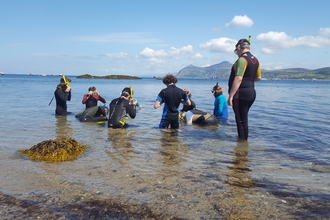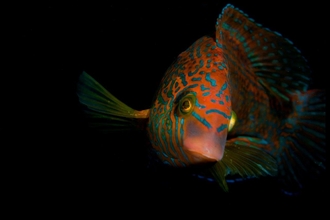A landmark report published today by a coalition of nature charities provides the first estimate of the carbon stored in seabed habitats in the Irish Sea and along the Welsh Coast.
The report is part of The Blue Carbon Mapping Project, completed by the Scottish Association for Marine Science (SAMS) on behalf of WWF-UK, The Wildlife Trusts and the RSPB. The series of reports mean the UK is the first nation to map and estimate the amount of carbon stored in its seabed habitats, including within Marine Protected Areas (MPAs).
The report reveals that 15.7 million tonnes of organic carbon* are stored in just the top 10cm of seabed sediments – principally made of mud – in the Irish Sea and Welsh Coastal Region.
The Irish Sea and Welsh Coastal Region covers 43,112 square kilometres. This vast area is host to habitats that capture and store carbon, known as ‘blue carbon’. They include seabed sediments (made of mud, silt and sand), vegetated habitats (seagrass meadows, saltmarshes, kelp forests and intertidal seaweeds), maerl beds and biogenic reefs, such as mussel beds and honeycomb worm reefs.
Carbon is primarily absorbed by phytoplankton, which drift to the bottom of the sea when they die and are added to seabed sediment. The research analysed the storage capacity of just the top 10cm of sediment. Some sediments are hundreds of metres thick and contain millennia’s worth of carbon, so the total carbon stored will be far greater.
The Blue Carbon Mapping Project highlights how physical disturbances to the seabed, including from human activity such as bottom trawling, as well as moorings and offshore developments, pose threats to blue carbon stores. Disturbing seabed habitats can release large amounts of carbon into the atmosphere, worsening climate change.
WWF, The Wildlife Trusts, and the RSPB are calling on governments across the UK to strengthen protections for valuable blue carbon stores – including in MPAs – by minimising the impacts of human activities on the seabed. Most MPAs were not designated to protect blue carbon, and failing to protect these areas from disturbance could threaten climate and biodiversity goals – including net-zero and protecting 30% of seas by 2030.
READ THE REPORTS....



